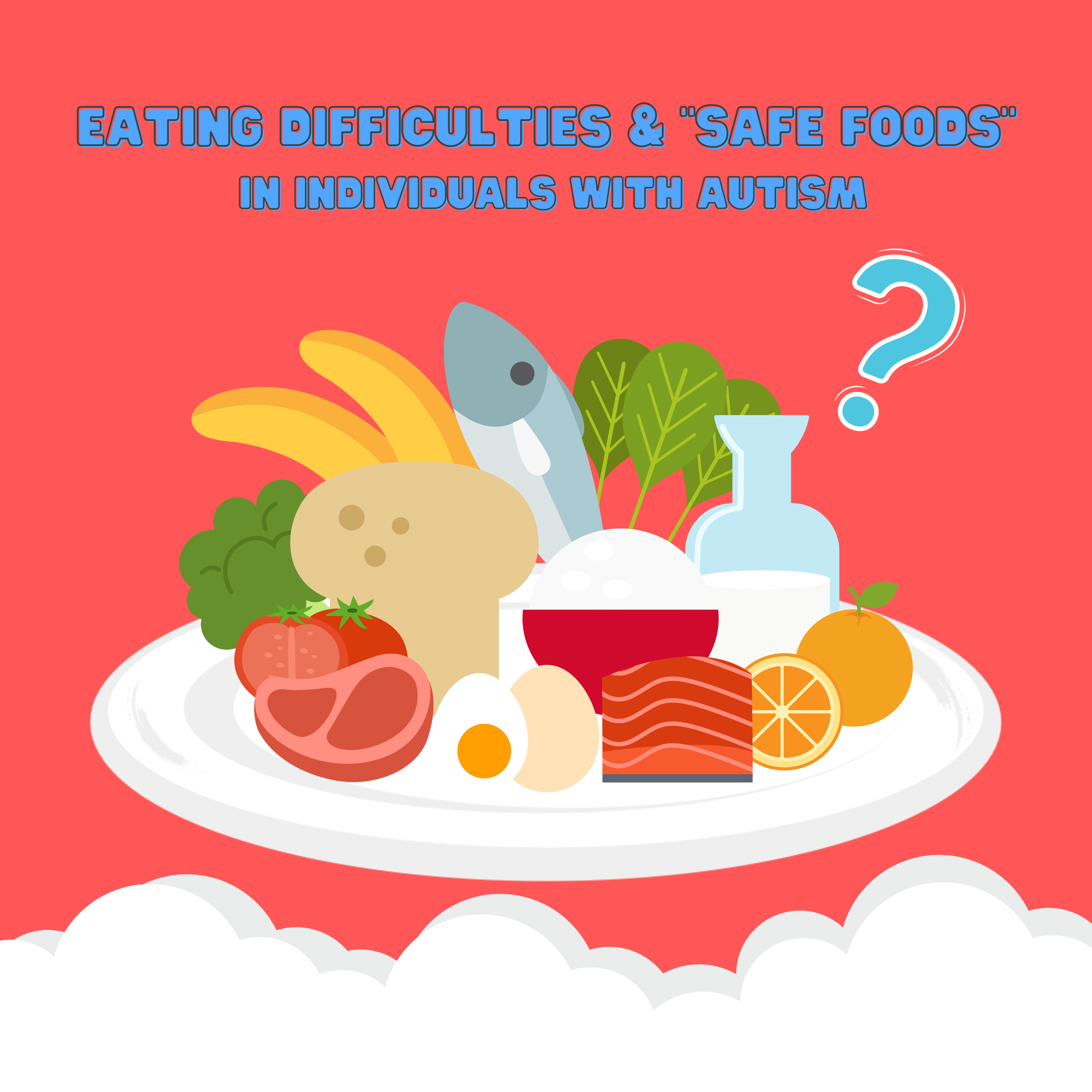
Eating and food issues are prevalent in individuals with autism, presenting challenges that persist from childhood into adulthood. This article explores the complexities of eating difficulties, the concept of "safe foods," and the insights from a qualitative study on autistic adults, shedding light on these issues' persistent and evolving nature.
Understanding Eating Difficulties in Autism
Sensory Sensitivity: Many individuals with autism experience heightened sensory sensitivity, affecting their eating habits. They may have specific preferences or aversions to foods based on texture, taste, smell, or appearance. For instance, some might prefer only crunchy foods, while others might avoid anything with a lumpy texture. Sensory-based avoidance can lead to a reliance on a limited range of foods, often leading to nutritional concerns.
Cognitive Factors: Cognitive rigidity and a desire for resemblance often influence the eating habits of those with autism. They might adhere to strict routines or rituals around food, such as eating simultaneously daily or using specific utensils. This rigidity can make introducing new foods particularly challenging.
Food Neophobia: Many autistic individuals experience a heightened sense of neophobia or fear of new foods. This can be an adaptive response to protect from unsafe foods but can become problematic when it limits nutritional intake and social experiences.
Anxiety and Disgust: Anxiety about the consequences of eating certain foods, such as fear of choking or being sick, can significantly affect eating behaviors. Disgust and contamination responses are shared, where an individual might reject a food based on its association with an unpleasant experience or sensation.
The Role of "Safe Foods"
Defining Safe Foods: For many with sensory sensitivities, including those with autism, "safe foods" provide a reliable and consistent sensory experience. These foods might have the same texture, taste, and smell every time they are consumed. Safe foods serve as a regulatory tool, offering comfort and predictability in what might otherwise be a stressful experience.
Importance of Safe Foods: Having safe foods readily available is crucial for many individuals with autism, especially during times of dysregulation or stress. These foods can help avoid meltdowns and provide a sense of control and security.
Insights from Autistic Adults
A study by five university members from the United Kingdom, interviewed 12 autistic adults to understand the impact of autism on their eating habits. It found that while some adaptations occur over time, many autistic adults continue to experience challenges related to sensory sensitivity, medical issues, executive functioning, and cognitive rigidity, affecting their eating behaviors and overall health.
- Sensory Sensitivity: Participants continued to experience heightened sensory sensitivity, affecting their food choices and leading to avoidance of certain foods or entire food groups.
- Medical Issues: Medical problems influence eating habits, necessitating dietary changes or avoiding specific eating environments.
- Executive Functioning Difficulties: Challenges with planning, memory, and organization affected the ability to manage food-related tasks, sometimes leading to inadequate nutrition.
- Cognitive Rigidity: A preference for routine and control influenced eating behaviors, leading to repetitive and routine-based eating habits and a reluctance to try new foods.
Conclusion
Understanding and addressing eating difficulties in individuals with autism requires an approach that respects their unique sensory experiences and cognitive needs. By acknowledging the importance of safe foods and offering supportive strategies, caregivers and professionals can help those with autism navigate their eating challenges more effectively. The insights from autistic adults highlight the need for continued support and understanding as these individuals navigate their unique challenges related to food and nutrition. As research and personal insights continue to grow, the hope is for more tailored and compassionate approaches to emerge, making mealtimes less stressful and more nourishing for individuals with autism.

